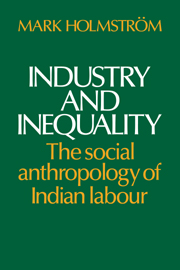Summary
How does one get a job? Which jobs are open to which people, for example people from different social origins? What happens to them afterwards: what are their chances of keeping the job or moving to a better one? And if people from certain backgrounds have an advantage in the competition for jobs, what are the other social consequences?
In the last chapter I showed how markets, linkages between firms, government policies and the law account for important differences in the terms of employment for industrial workers: permanent workers in large firms, workers in small firms with regular jobs but no legal security, ‘temporary’ or contract workers employed for continuous stretches and genuinely casual workers who are often out of work. The most secure jobs are generally the best paid, except for some skilled work like carpentry. Unions respond to this situation in various ways, but do not (I think) bring it about.
Workers in small workshops, or ‘temporary’ and contract workers in factories, often appear to do the same work as permanent factory workers, or very similar work, though they earn much less. In some cases (as factory managers claim) the same job title may conceal a wide difference in standards of skill and training and precision between factories and workshops. This need not mean factories get all the most able workers, only that they have the best machinery and training resources.
- Type
- Chapter
- Information
- Industry and InequalityThe Social Anthropology of Indian Labour, pp. 181 - 247Publisher: Cambridge University PressPrint publication year: 1984

